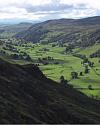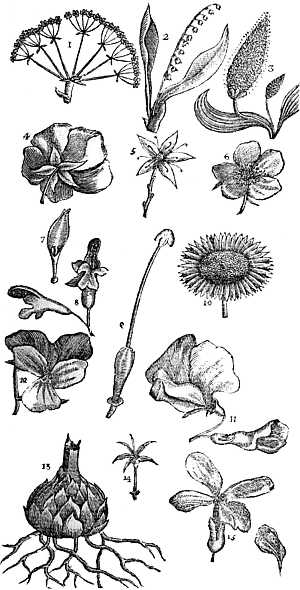 (source)
(source)
|
John Wilson
(1696 - 15 Jul 1751)
English botanist who was the first to attempt a systematic arrangement of the indigenous plants of Great Britain in the English language
|
John Wilson
A short biography (publ. 1832)
[p.827] On the 15th of July, 1751, died, aged fifty-five, John Wilson, author of the “Synopsis of British Plants,” and the first writer that attempted a systematic arrangement of our indigenous plants in the English language.
He was born in Longsleddal, near Kendal, in Westmorland, and became a shoemaker in the capacity of a journeyman, which occupation he exchanged for the more lucrative employment of a baker, soon enough to afford his family the common conveniences of life. He ranks among the self-elevated men who without a liberal education distinguished themselves by scientific and literary abilities.
When he studied botany, the knowledge of system was not to be obtained from English books, and Ray's botanical writings, of whose method he was a perfect master, were all in Latin; and yet Wilson became an expert and accurate botanist, before Linnæus's method of discriminating species improved the science.
His business of a baker was principally managed by his wife. A severe asthma, which prevented him from pursuing his trade as a shoemaker, assisted him to cultivate his favorite science. He amused the lingering hours of sickness with frequent excursions, and explored the marshes and hills of his native county, often accompanied by lovers of botany and the scenes of nature. He expressed himself with unreserved freedom, and many of his sententious remarks will be long remembered.
Being once in the county of Durham, he was introduced to a person who cultivated rare plants for his pleasure, and who, judging of Wilson's abilities by his humble appearance, challenged him to a trial of skill. In the course of it he treated Wilson, of whose knowledge he had heard, with much disrespect. Wilson perceived this, and after naming most of the rarities contained in the garden, and referring to authors who describe them, he plucked a wild herb, from a neglected spot, and presented it to his opponent, who endeavoured to get clear of the difficulty by pronouncing it a weed; Wilson immediately replied, a weed is a term of art, not a production of nature. He added that the explanation proved his antagonist to be a gardener, not a botanist, and the contest ended.
The hospitality of several persons of taste and fortune enabled Wilson to prosecute his researches on an economical plan suited to his condition. Mr. Isaac Thompson, an eminent land-surveyor, resident at Newcastle-upon-Tyne, was his steadiest patron, and warmest encourager. Wilson frequently accompanied this gentleman, when travelling in the line of his profession, under the character of an assistant, which left him at full liberty to examine the plants of the different places they visited.
His “Synopsis” was published in the year 1744; it comprehends that part of Ray's method which treats of the more perfect herbs, beginning at the fourth genus, or class; and ending with the twenty-sixth. He promised, in the preface, to complete the performance at a future period; but did not live to finish a second volume, which was intended to contain the fungi, mosses, grasses, and trees.
The last three or four years of his life were passed in a state of debility that rendered him unfit for application. The writings of Linnæus became popular in England shortly after Wilson's death, or his attainments and character would have become better known and estimated.*
*Gentleman's Magazine
- Science Quotes by John Wilson.
- 15 Jul - short biography, births, deaths and events on date of Wilson's death.
- John Wilson - biography from The Gentleman's Magazine (1811).
- John Wilson - short biography from an article 'From A Country Parsonage', in The Gentleman's Magazine (1891).





